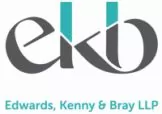The Fighting Against Forced Labour and Child Labour in Supply Chains Act (Canada) (the "Act") came into force January 1, 2024. The Act imposes obligations on certain private-sector entities (and government institutions) to report on the measures taken to prevent and reduce the risk that forced labour or child labour is used by them or in their supply chains. The Act also amends the Customs Tariff (Canada) to allow for the prohibition on the importation of goods manufactured or produced, in whole or in part, by forced labour or child labour as defined in the Act. If an organization is an entity that has a reporting obligation under the Act, it must file an annual report on or before May 31 of each year, with its first report being due May 31, 2024. This article provides information relating to key provisions of the Act and how it may apply to your organization.
Definition of Entity
The first step in determining whether the Act applies to a business or organization is to identify whether it is an "entity." An entity means a corporation, trust, partnership or other unincorporated organization that:
(a) is listed on a stock exchange in Canada; or
(b) has a place of business in
Canada, does business in Canada or has assets in Canada and that,
based on its
consolidated financial statements, meets at least two of the
following conditions for at least one of its two
most recent financial years:
(i) it has at least $20 million in global assets,
(ii) it has generated at least $40 million in gross global revenue, and
(iii) it employs an average of at least 250 global employees.
The determination of whether an organization is an entity should be done at each level of the organization. For example, a parent company may meet the above thresholds and be considered an entity under the Act, but a subsidiary may not meet the thresholds and thus would not be considered an entity.
Reporting Entity
If a business or organization meets the criteria above and is an entity under the Act, the next step is to determine whether it has a reporting obligation under the Act. To be a reporting entity, the entity must:
(a) produce, sell or distribute goods in Canada or elsewhere;
(b) import into Canada goods produced outside of Canada; or
(c) control an entity that engages in any of the activities in paragraphs (a) or (b).
If the entity meets the above criteria, it must, on or before May 31 of each year, complete a questionnaire and submit a report to the Minister of Public Safety outlining the steps it has taken during the previous financial year to prevent and reduce the risk that forced labour or child labour is used at any step in the entity's production of goods in Canada or elsewhere or in the importation of goods into Canada by that entity.
Information to be Included in the Report
The report must include information regarding its supply chains, identify the risks of use of forced labour or child labor in its activities and supply chains, the steps taken to assess and manage that risk, and measures taken to remediate any forced labor or child labour.
The report must be approved and certified by its governing body (e.g. a corporation's board of directors), and then submitted along with a completed questionnaire to the Minister of Public Safety.
Publicly Available Information
The report will form part of a publicly searchable catalogue maintained on the Public Safety Canada website. In addition, a reporting entity must make the report available to the public, including by publishing the report in a prominent place on its website. Canada Business Corporations Act corporations must provide the report to their shareholders along with their annual financial statements.
Consequences of Non-Compliance by a Reporting Entity
An entity which fails to file a report or files false or misleading information is guilty of an offence punishable on summary conviction and liable to a fine of not more than $250,000. Any director, officer or agent of the entity who directed, authorized, assented to, acquiesced or participated in the offence is also guilty of the offence and liable on conviction for the punishment provided for in the offence.
Takeaways for Organizations
To assist organizations with compliance with the Act, the Minister of Public Safety released its Guidance for entities on December 20, 2023. Given the complexities of the Act and the penalties for non-compliance, it is strongly recommend that you consult with legal professionals in reviewing and fulfilling your compliance and reporting obligations under the Act.
The Fighting Against Forced Labour And Child Labour In Supply Chains Act – What You Need To Know
The content of this article is intended to provide a general guide to the subject matter. Specialist advice should be sought about your specific circumstances.
We operate a free-to-view policy, asking only that you register in order to read all of our content. Please login or register to view the rest of this article.



